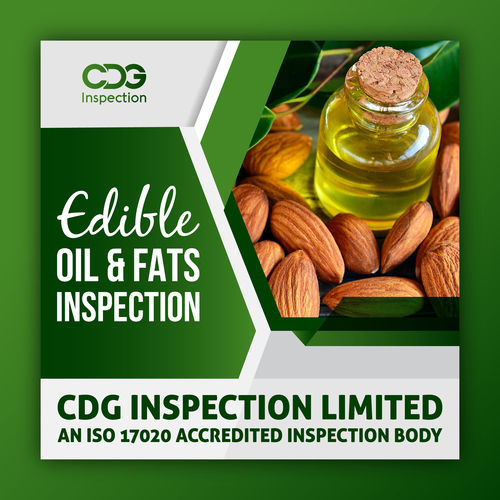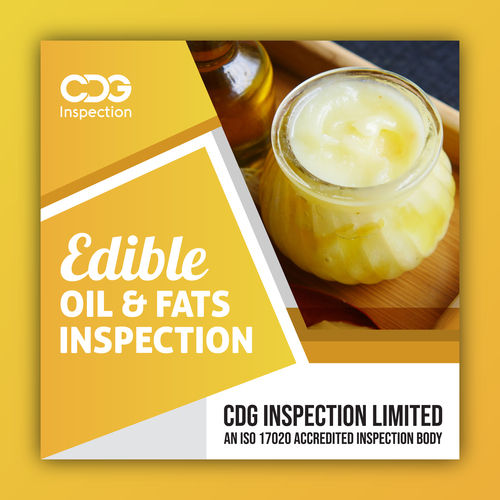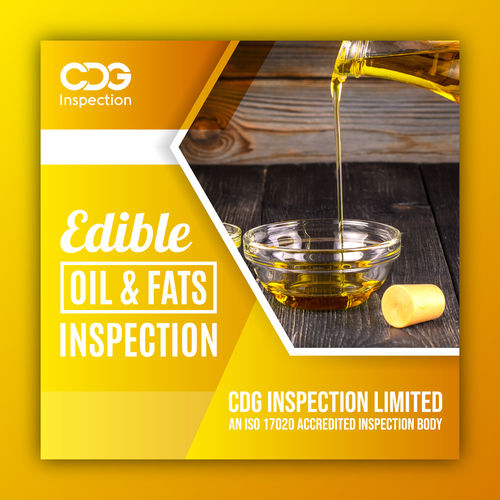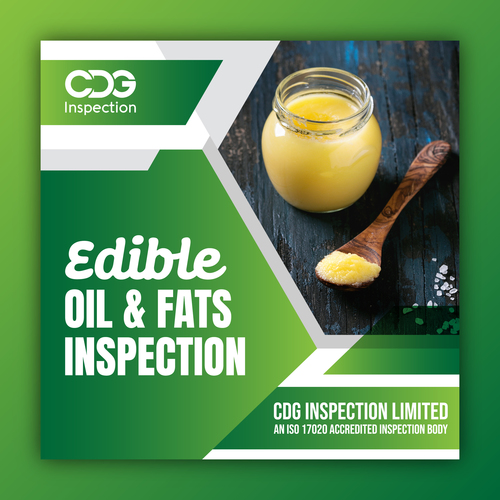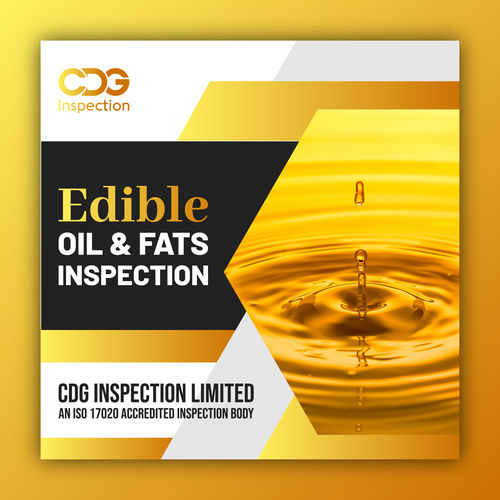Oil and Fats Inspection In Indore
Product Details:
X
Product Description
CIL Provides Accredited Edible Oil & Fats Inspection Services in Indore, Haryana, India. Edible cooking oils and fats are defined by Codex Alimentarius Commission as food stuffs which are composed of glycerides of fatty acids. These may be of vegetable, animal or marine origin. They may also contain trace amounts of other lipids like phosphatides, of un saponifiable constituents, free fatty acids naturally present in them. Cooking oils play a central role in our daily nutrition and as a raw material for the food industry. Apart from being an important dietary source, cooking oils contribute to flavour and palatability of prepared foods. Recent circumstances highlighted the importance of Food safety and FSSAI has made its laws and norms stricter. FSSAI acts made food testing, shelf life analysis, nutritional labelling, sensory evaluation mandatory to enhance the quality of the product. Majorly Consumed Cooking Oils Include Seed oils, nut oils and pulps, Rapeseed, sunflower, safflower, linseed, pumpkin seeds, sesame, Grain sprouts, Nuts(walnut, hazelnut, peanut), Palm, coconut, soy, avocado, Olive oil (according to act (EWG) No 2568,9), Oil from melon or guard seeds (pumpkin seed oil, watermelon seed oil), Animal oils and fats (fish oil, beef tallow etc.), Lecithin, Margarine, spreadable fats. In the past we have seen incidents of oil adulteration where groundnut oils contained undeclared less quantities of cheaper oils like soybean oil. Likewise, cottonseed oil adulterated with pal mole in oil. Detection of these adulterations is no more difficult in these times where accurate analytical techniques were developed and a lot more research work is being done to increase the efficiency of detection. Safety Issues and Regulations Associated with Cooking Oils. Cooking oil comes under widely utilized food commodity and hence its quality check is most discussed. As mentioned above, now a days unfortunately, adulteration plays a destructive role i food products quality and safety like blending quality oil with cheap oils is the most concerned safety issue especially from the customer's voice. Long term storage of fat and oil containing foods are more susceptible to auto oxidation reaction and results in by products which exert undesirable colour and flavour. One of the important factors affecting quality and value of oils are Free Fatty Acids (FFA). These are products of a chemical reaction called hydrolysis of oils. These are susceptible to oxidation and leads to rancidity. When foods containing oils and fats are cooked at very high temperatures, hydrolytic rancidity can occur. Congeal points, viscosity, cloud point, melting point and related parameters of fats and oils determine the texture or consistency of food products. Whereas, stability of oils during storage and cooking is determined by chemical characteristics like iodine value, saponification value, peroxidase value etc. We all are aware of the term Trans Fats mentioned under nutritional labelling of a food product. These trans fats are associated with increasing LDL cholesterol level in blood. LDL is bad cholesterol and is known to increase the risk of heart attacks. Trans fats are manufactured through a process called hydrogenation. Keeping in view of this, FDA has taken steps to remove artificial trans fats in processed foods. In 2015, FDA determined that partially hydrogenated oils (PHOS), the major source of artificial trans fat in the food supply, are no longer Generally Recognized as Safe or GRAS foods. Prevalence of 3 MCPD (3 Mono chloropropane 1,2 Diol Esters) and Glycidyl Esters (GEs) in edible oils has been a topic of discussion as far as human safety is considered. 3 MCPD consumption in higher amounts is linked to kidney damage, reduced male fertility and glycidyl Esters consumption may be carcinogenic and genotoxic. Regarding safety of refined oils, Scientific Panel on Oils and Fats at FSSAI (Foods Safety and Standards Authority of India)reported that refined oils are totally safe to use as cooking oil and refining reduces the chance of aflatoxin poisoning. Total Polar Compounds (TPC) is a measure of quality of oil. These compounds increase when oil is reheated repeatedly. High concentrations of TPC when consumed for loner time may cause hypertension, Alzheimer's disease, liver abnormalities etc., according to FSSAI regulations, TPC has to be within a limit of 25 percent. Hence, ensuring the safety and quality of a food product through food quality testing is very important. Evaluating the degree of deterioration in cooking oil during storage and cooking helps to maintain the quality of finished products. The CDG advantages, Sampling on site, in accordance with national or international standards. Our analytical services are performed with state of the art equipments. Fast turn around time (TAT). Local contact with a global network. Online services ordering and analytical results on line(EOL). Active Participation in industry associations and regulatory bodies allowing early advice on potential food scares and legal obligations. Expert advice related to testing schemes, on site check for hygiene and allergens, labelling advice and traceability. Reliable results. International presence.
Tell us about your requirement

Price:
Quantity
Select Unit
- 50
- 100
- 200
- 250
- 500
- 1000+
Additional detail
Mobile number
Email

